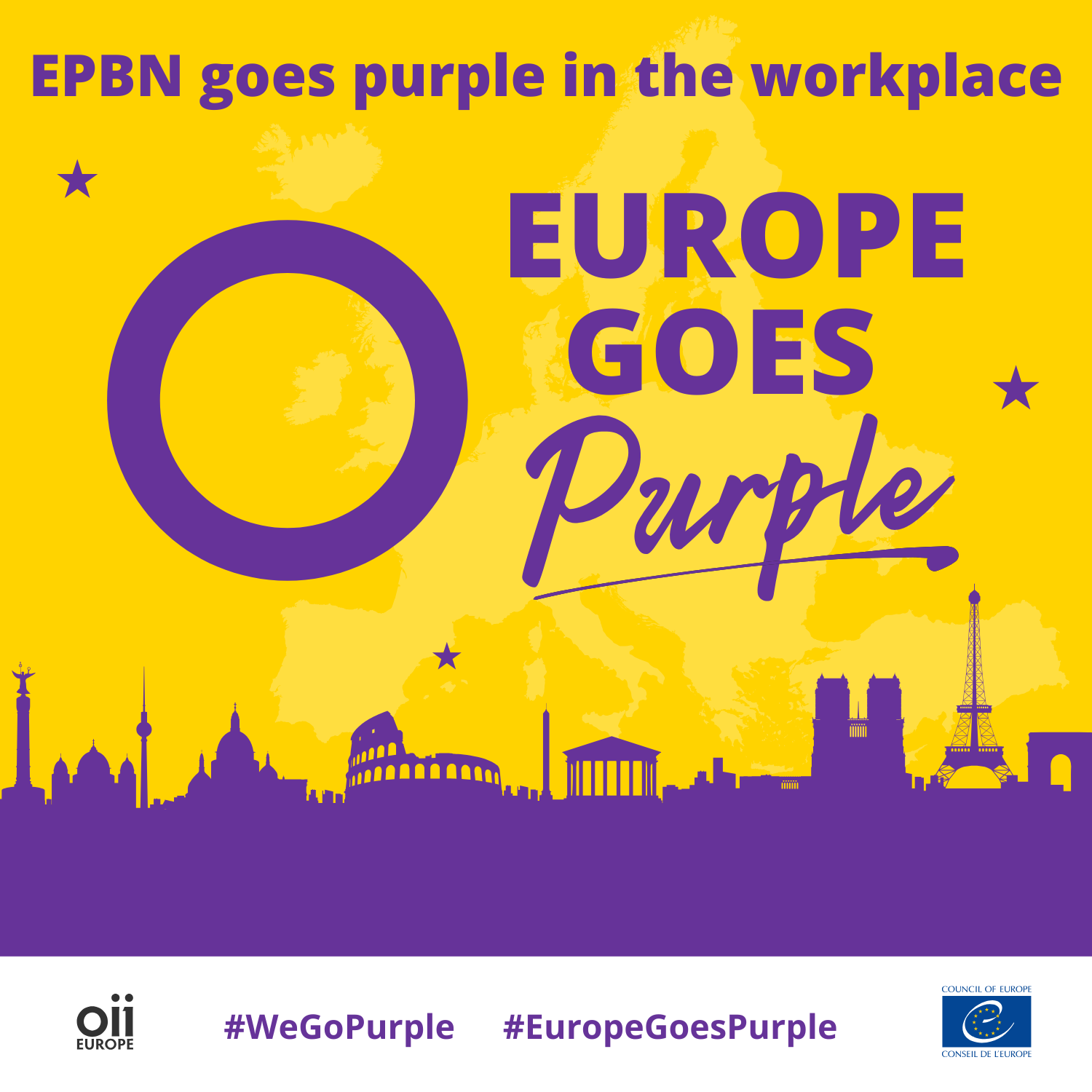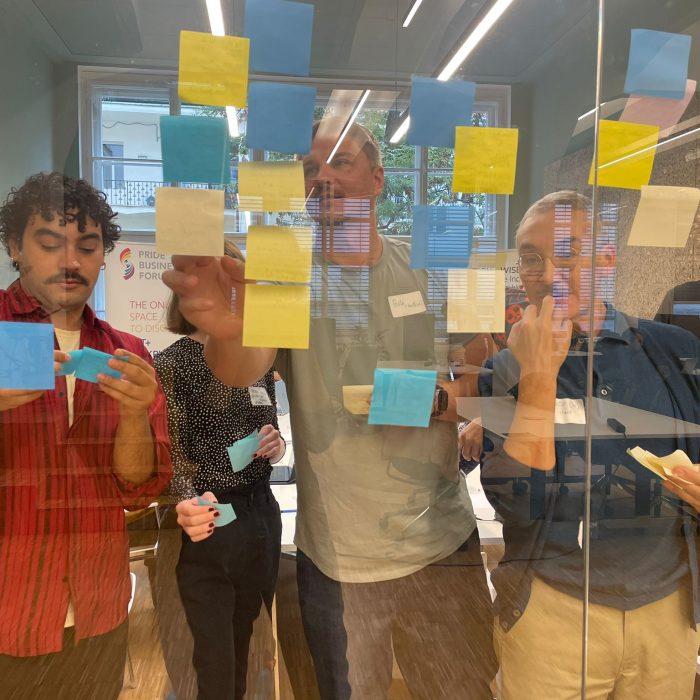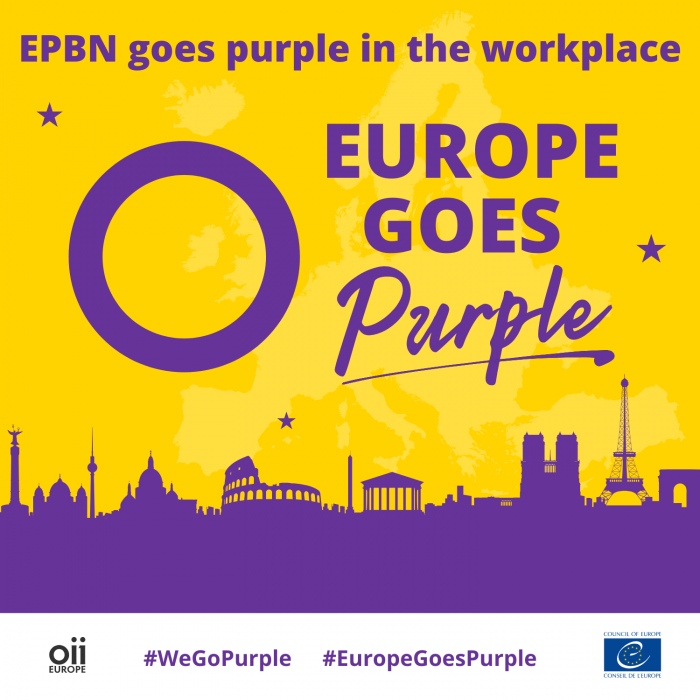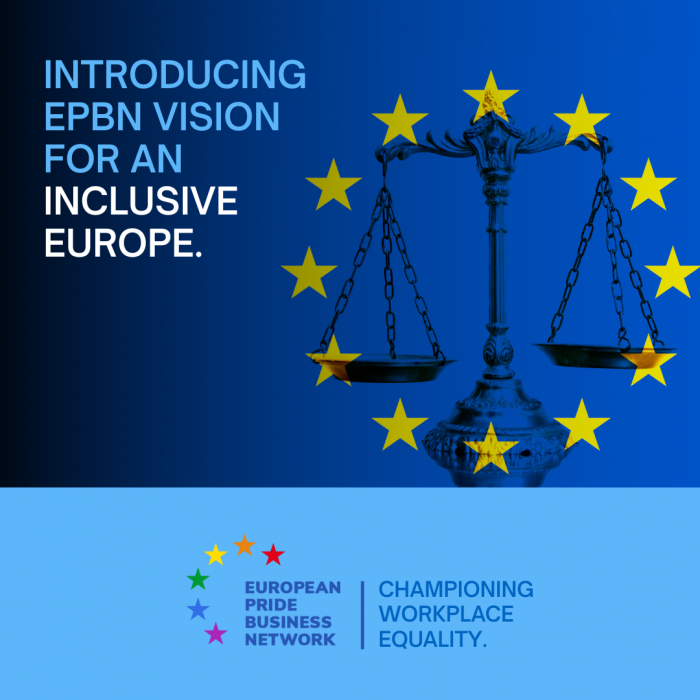Today, October 27th, marks the launch of the #EuropeGoesPurple campaign, but it also celebrates a historic human rights milestone: the unanimous adoption of the Council of Europe’s Recommendation on Equal Rights for Intersex Persons (CM/Rec(2025)7).
This Recommendation, adopted by 46 Member States, establishes a new “gold standard” in Europe, creating the most comprehensive framework to date for protecting the human rights of intersex people. While widely celebrated for prohibiting non-consensual medical interventions, the Recommendation is equally transformative for European workplaces.
For the European Pride Business Network (EPBN) and our 25 members in 24 countries, this is not just a policy development; it is an urgent mandate to update European D&I strategies.
EPBN Goes Purple in the Workplace: Translating Legal Standards into Action
The Council of Europe’s framework covers a comprehensive range of topics, including tackling hate crime, prohibiting discrimination, and ensuring access to health and social care. Below are the four most crucial requirements that directly impact European employers:
1. Prohibit Discrimination Based on Sex Characteristics
The Mandate: Member States must explicitly include “sex characteristics” as a protected ground in anti-discrimination legislation.
The Workplace Impact: This means any discrimination based on intersex status—whether in hiring, promotion, training, or termination—must be legally prohibited and subject to clear sanctions within your company. Simply being LGBTIQ-inclusive is no longer enough; your policies must explicitly mention and protect individuals with variations of sex characteristics to ensure they have genuinely equal opportunities in employment.
2. Combat Hate Crime and Hate Speech
The Mandate: Member States must take steps to prevent and combat all forms of violence, harassment, and hate speech targeting intersex persons.
The Workplace Impact: This requires employers to adopt zero-tolerance policies against micro-aggressions, harassment, and hate speech specifically based on sex characteristics. Mandatory training is essential for all managers and staff to help them:
- Understand intersex experiences using accurate, non-pathologising language.
- Know how to intervene effectively against discrimination and harassment.
3. Ensure Inclusive Official Documentation
The Mandate: Governments are encouraged to facilitate legal recognition processes that respect self-determination, including exploring the possibility of non-binary markers (e.g., ‘X’) on official documents.
The Workplace Impact: Companies must update their internal administrative systems, HR platforms (HRIS), and forms. Are your systems still forcing employees into a rigid, binary sex/gender designation? Inclusive data collection is a necessary step for ensuring that administrative processes reflect the full spectrum of employee identities.
4. Provide Training and Awareness
The Mandate: Public officials—and by extension, workplace leaders and HR teams—must be educated and trained about the human rights of intersex people.
The Workplace Impact: Education is the foundation of inclusion. Your organization needs to roll out comprehensive training to increase awareness, promote positive and accurate language, and ensure a cultural shift that respects intersex bodily autonomy and experience.
A Call to Action
The Recommendation paves the way for clear, standardised human rights protections across the continent. As Dan Christian Ghattas, Executive Director of OII Europe, states, the Recommendation “powerfully highlights the significant gaps in rights protections that intersex individuals continue to face and provides clear guidance to States on how to address them.”
By participating in #EuropeGoesPurple from October 26th to November 8th, EPBN members are calling workplace leadership to take the necessary steps to close these gaps and ensure that the new European gold standard is implemented effectively in every office and workplace across the region. More at www.europegoespurple.org.






